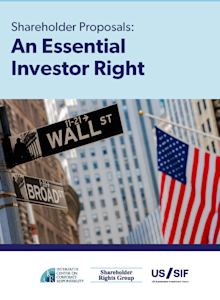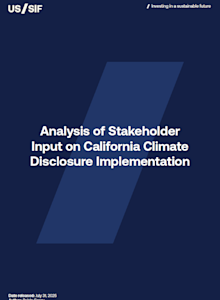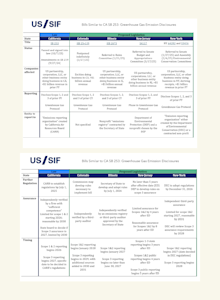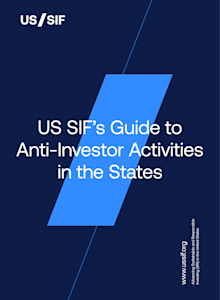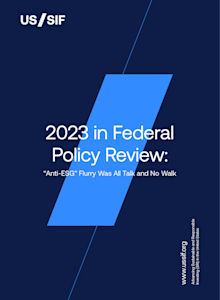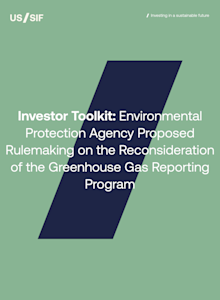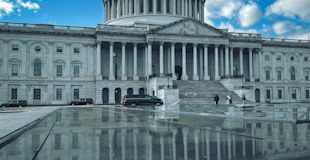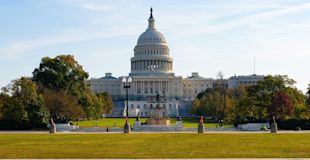
Bringing the Voice of Sustainable Investing to Policymakers
Policy Overview
US SIF recognizes the profound impact that policymakers and regulators have on the sustainable investment field and the distinct voice that US SIF members bring to policy discussions.
Our policy program works to advance a regulatory agenda that maintains and enhances the sustainable and impact investment field. In collaboration with our Public Policy Committee, the policy team creates educational resources and provides our members with opportunities to share insights directly with policymakers.
Shareholder Rights
Engaging directly with companies about their sustainability risks and opportunities is a key strategy employed by many of our members. US SIF supports public policies that maintain the tools that investors use to engage with the companies they own, including the shareholder proposal process.
Market Transparency
US SIF supports public policies that promote corporate reporting of uniform, consistent, and comparable sustainability risks and opportunities. Without transparency in the capital markets, investors cannot make the best financial decisions for their clients.
Sustainable Investing Practices
Our members use a range of strategies to incorporate financially relevant sustainability information into their businesses. US SIF supports policies that empower investors to use the strategies that generate the most value for their clients.
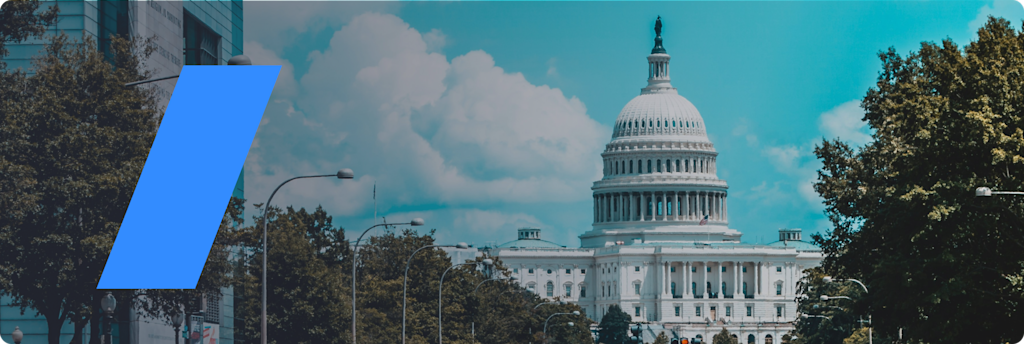
Weekly Policy Insights
Stay informed with our latest updates: Explore the latest insights below or click through to view all.
Key Policy Resources
Letters & Statements

Capitol Hill Day 2026
Meet Directly with Policymakers
We set up meetings with staff at the SEC and in Congress for you.
Share Your Perspective
Inform policymakers about why your business focuses on sustainability and what you need to thrive.
Receive Training in Advance
We will equip you with all the tools you need to conduct an effective meeting with policymakers.
